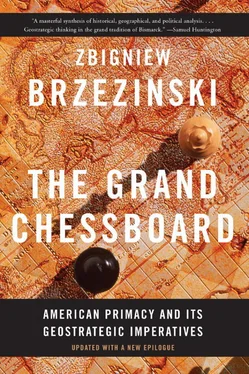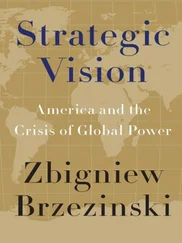China’s further history involved cycles of reunification and expansion, followed by decay and fragmentation. More than once, China succeeded in establishing imperial systems that were self-contained, isolated, and unchallenged externally by any organized rivals. The tripartite division of the Han realm was reversed in A.D. 589, with something akin to an imperial system reemerging. But the period of China’s greatest imperial self-assertion came under the Manchus, specifically during the early Ch’ing dynasty. By the eighteenth century, China was once again a full-fledged empire, with the imperial center surrounded by vassal and tributary states, including today’s Korea, Indochina, Thailand, Burma, and Nepal. China’s sway thus extended from today’s Russian Far East all the way across southern Siberia to Lake Baikal and into contemporary Kazakstan, then southward toward the Indian Ocean, and then back east across Laos and northern Vietnam (see map on page 14).
As in the Roman case, the empire was a complex financial, economic, educational, and security organization. Control over the large territory and the more than 300 million people living within it was exercised through all these means, with a strong emphasis on centralized political authority, supported by a remarkably effective courier service. The entire empire was demarcated into four zones, radiating from Peking and delimiting areas that could be reached by courier within one week, two weeks, three weeks, and four weeks, respectively. A centralized bureaucracy, professionally trained and competitively selected, provided the sinews of unity.
That unity was reinforced, legitimated, and sustained—again, as in the case of Rome—by a strongly felt and deeply ingrained sense of cultural superiority that was augmented by Confucianism, an imperially expedient philosophy, with its stress on harmony, hierarchy, and discipline. China—the Celestial Empire—was seen as the center of the universe, with only barbarians on its peripheries and beyond. To be Chinese meant to be cultured, and for that reason, the rest of the world owed China its due deference. That special sense of superiority permeated the response given by the Chinese emperor—even in the phase of China’s growing decline, in the late eighteenth century—to King George III of Great Britain, whose emissaries had attempted to inveigle China into a trading relationship by offering some British industrial products as goodwill gifts:
We, by the Grace of Heaven, Emperor, instruct the King of England to take note of our charge:
The Celestial Empire, ruling all within the four seas… does not value rare and precious things… nor do we have the slightest need of your country’s manufactures….
Hence we… have commanded your tribute envoys to return safely home. You, O King, should simply act in conformity with our wishes by strengthening your loyalty and swearing perpetual obedience.
The decline and fall of the several Chinese empires was also primarily due to internal factors. Mongol and later occidental “barbarians” prevailed because internal fatigue, decay, hedonism, and loss of economic as well as military creativity sapped and then accelerated the collapse of Chinese will. Outside powers exploited China’s internal malaise—Britain in the Opium War of 1839–1842, Japan a century later—which, in turn, generated the profound sense of cultural humiliation that has motivated the Chinese throughout the twentieth century, a humiliation all the more intense because of the collision between their ingrained sense of cultural superiority and the demeaning political realities of postimperial China.
Much as in the case of Rome, imperial China would be classified today as a regional power. But in its heyday, China had no global peer, in the sense that no other power was capable of challenging its imperial status or even of resisting its further expansion if that had been the Chinese inclination. The Chinese system was self-contained and self-sustaining, based primarily on a shared ethnic identity, with relatively limited projection of central power over ethnically alien and geographically peripheral tributaries.
The large and dominant ethnic core made it possible for China to achieve periodic imperial restoration. In that respect, China was quite unlike other empires, in which numerically small but hegemonically motivated peoples were able for a time to impose and maintain domination over much larger ethnically alien populations. However, once the domination of such small-core empires was undermined, imperial restoration was out of the question.
To find a somewhat closer analogy to today’s definition of a global power, we must turn to the remarkable phenomenon of the Mongol Empire. Its emergence was achieved through an intense struggle with major and well-organized opponents. Among those defeated were the kingdoms of Poland and Hungary, the forces of the Holy Roman Empire, several Russian and Rus’ principalities, the Caliphate of Baghdad, and later, even the Sung dynasty of China.
Genghis Khan and his successors, by defeating their regional rivals, established centralized control over the territory that latter-day scholars of geopolitics have identified as the global heartland, or the pivot for world power. Their Eurasian continental empire ranged from the shores of the China Sea to Anatolia in Asia Minor and to Central Europe (see map). It was not until the heyday of the Stalinist Sino-Soviet bloc that the Mongol Empire on the Eurasian continent was finally matched, insofar as the scope of centralized control over contiguous territory is concerned.
The Roman, Chinese, and Mongol empires were regional precursors of subsequent aspirants to global power. In the case of Rome and China, as already noted, their imperial structures were highly developed, both politically and economically, while the widespread acceptance of the cultural superiority of the center exercised an important cementing role. In contrast, the Mongol Empire sustained political control by relying more directly on military conquest followed by adaptation (and even assimilation) to local conditions.
Mongol imperial power was largely based on military domination. Achieved through the brilliant and ruthless application of superior military tactics that combined a remarkable capacity for rapid movement of forces with their timely concentration, Mongol rule entailed no organized economic or financial system, nor was Mongol authority derived from any assertive sense of cultural superiority. The Mongol rulers were too thin numerically to represent a self-regenerating ruling class, and in any case, the absence of a defined and self-conscious sense of cultural or even ethnic superiority deprived the imperial elite of the needed subjective confidence.
In fact, the Mongol rulers proved quite susceptible to gradual assimilation by the often culturally more advanced peoples they had conquered. Thus, one of the grandsons of Genghis Khan, who had become the emperor of the Chinese part of the great Khan’s realm, became a fervent propagator of Confucianism; another became a devout Muslim in his capacity as the sultan of Persia; and a third became the culturally Persian ruler of Central Asia.
It was that factor—assimilation of the rulers by the ruled because of the absence of a dominant political culture—as well as unresolved problems of succession to the great Khan who had founded the empire, that caused the empire’s eventual demise. The Mongol realm had become too big to be governed from a single center, but the solution attempted—dividing the empire into several self-contained parts—prompted still more rapid local assimilation and accelerated the imperial disintegration. After lasting two centuries, from 1206 to 1405, the world’s largest land-based empire disappeared without a trace.
Читать дальше












